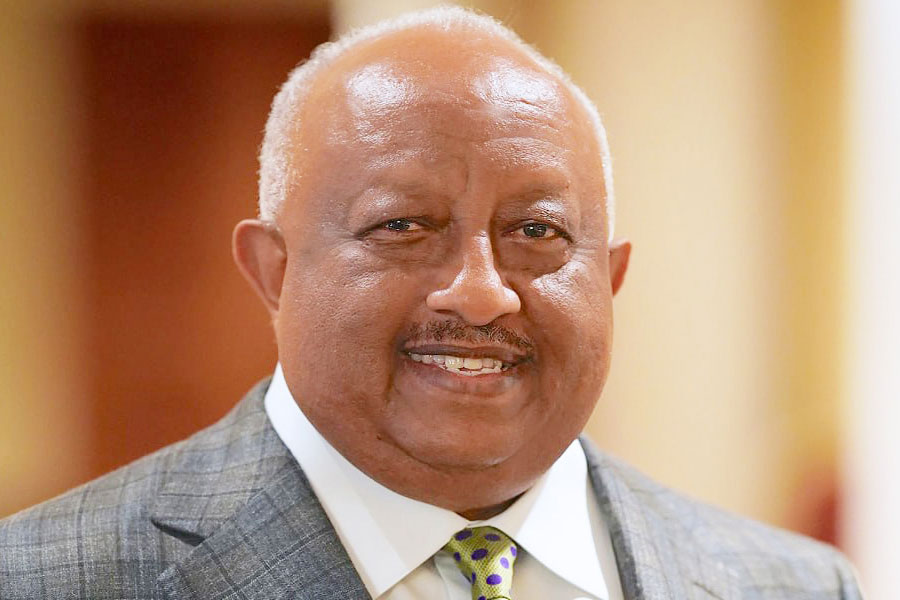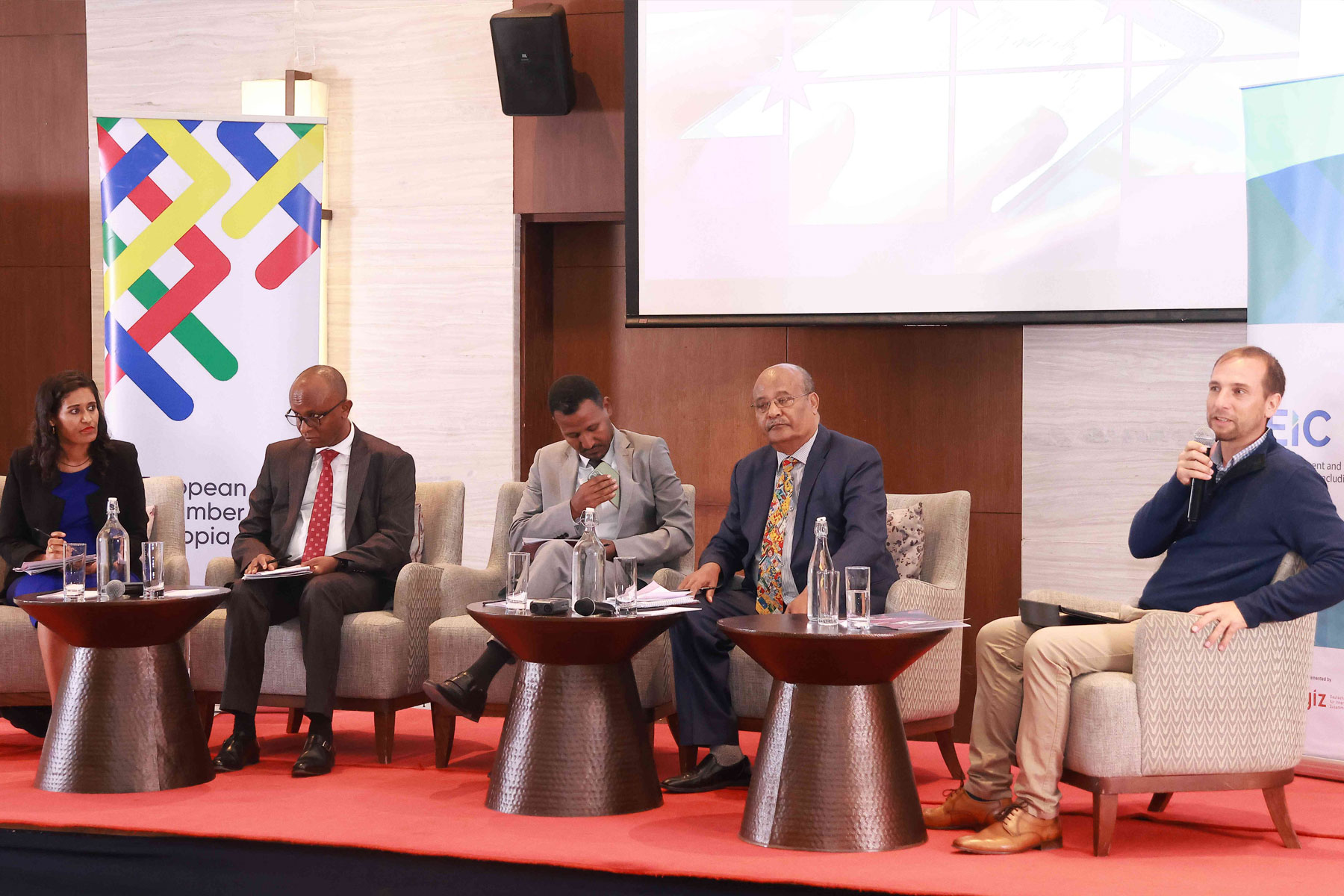
Fortune News | Jan 27,2024
The contractual agreement for five community development projects financed primarily by the Ethiopian Diaspora Trust Fund (ETDF) was signed in the middle of last week. The agreements were inked after the Agency for Civil Society Organisations gave clarification over the legitimacy of the existing members of the board of directors.
The winners of the projects were announced in February, but the agreement was not signed for three months due to a dispute among board members. Worth a total of 56 million Br, the projects will be undertaken in Oromia, Amhara, Afar and Tigray regional states, as well as in Addis Abeba.
The projects, which will be implemented in two years, aim to address early childhood care and education for orphans and vulnerable children, special needs education, safe water supply, hygiene and sanitation. The projects will be developed with five implementing partners, which will cover 15.5pc of the cost.
The projects are among the 21 that have been picked by the board for implementation. About 410 proposals were tabled to the Fund, and 242 were found reviewable. After evaluating them, the experts pushed 67 fundable projects to the board of directors for consideration and approval. The board shortlisted 21 winning projects and finally picked five. The UNDP was also involved in the evaluation process, which included visiting the project sites.
Hiwot Integrated Development Organisation was contracted to ensure early childhood care and education for orphans and vulnerable children in Kolfe Keraneo District in the capital. Worth 10.5 million Br, the project is expected to nurture the proper and holistic development of 400 destitute children between the ages of three and six. Only 35pc of orphans and vulnerable children in the city are enrolled in pre-primary education.
Help for Persons with Disabilities Organisation will engage with full special needs education facilities at schools in three weredasof Semien Shoa Zone in Amhara Regional State, Ataye, Debresina and Debre Berhan. The 15.6 million Br project will construct three special needs education program implementation centres. Over 90pc of school-age children with disabilities are out of school due to the prevailing challenges and barriers at schools.
Pro Development Network will work on ensuring safe water supply, hygiene and sanitation for hard-to-reach communities using renewable energy in Afar and Tigray regional states. With a 7.9 million Br budget, the project is expected to ensure access to water for 7,060 people - 6,750 dwellers in the Afar Regional State and 310 in Meqelle city. Only 28.2pc of the area's population has access to safe water, and water-borne diseases are common there.
Korah Great Hope Charity Organisation is in charge of promoting hygiene and sanitation in Kolfe Keraniyo District. Worth 10.8 million Br, the project includes building 15 communal latrines, addressing the hygiene and sanitation status of the community and two schools in the district within a two-year period. More than 33,300 inhabitants of Wereda 01, Kolfe Keraniyo District have been suffering from poor hygiene and sanitation conditions.
Gurmuu Development Association has taken on a project enhancing educational services in four primary schools in Oromia Regional State for 10.6 million Br. It will operate in the area where 30pc of the school-age children are out of school. It is expected to increase the enrollment rate of 960 new school-age and 240 pre-school children a year as well as create a conducive teaching-learning environment for 5,388 students a year.
Among the five projects, Help for Persons with Disabilities Organisation, which was founded by people with disabilities, has the largest budget. The Organisation raised a third of the total budget from three donors, All We Can, Light for the World and the Finnish Federation of the Visually Impaired. The project aims to train 225 people with disabilities a year.
"While people with disabilities in Ethiopia represent 17.6pc of the population," said Abebe Yehualawork (PhD), executive director of Hope, "the issue is ignored, and the existing system is inclusion through exclusion."
The centres to be built by Hope will train adaptive, orientation and mobility skills for children with disabilities until grade four when they start taking a class with non-disabled students, according to Abebe. The centres will also have ramps, adaptive ICT labs, resource centres, training centres for visually impaired people and accessible toilets.
"We want the government to use the centres as a sample and replicate them across the country," Abebe told Fortune.
The initiative of the Ethiopian Diaspora Trust Fund was started after Prime Minister Abiy Ahmed (PhD) who called on the diaspora community to contribute a dollar a day to fund social and developmental projects during his visit to the United States a year ago. So far, 26,000 individuals from the diaspora community in 93 countries have contributed six million dollars.
Differences in political views constrained the Fund from moving as fast as expected, according to Zafu Eysuswork, chairperson of the 10-member board.
"We didn't raise as much cash as expected," he said.
There are questions raised on the remaining 16 projects that need to be cleared first, according to Zafu, who adds that the agreements for these projects will be signed after the questions are addressed. Five million dollars is in the account of the Fund waiting to be allocated.
PUBLISHED ON
May 09,2020 [ VOL
21 , NO
1045]

Fortune News | Jan 27,2024

Radar | May 31,2020

My Opinion | Apr 26,2025

Radar | Feb 13,2021

Fortune News | Apr 28,2024

Radar | Jan 11,2020

Viewpoints | Dec 25,2018

Radar | Jun 04,2022

Radar | Sep 28,2019

Radar | Aug 13,2022

Dec 22 , 2024 . By TIZITA SHEWAFERAW
Charged with transforming colossal state-owned enterprises into modern and competitiv...

Aug 18 , 2024 . By AKSAH ITALO
Although predictable Yonas Zerihun's job in the ride-hailing service is not immune to...

Jul 28 , 2024 . By TIZITA SHEWAFERAW
Unhabitual, perhaps too many, Samuel Gebreyohannes, 38, used to occasionally enjoy a couple of beers at breakfast. However, he recently swit...

Jul 13 , 2024 . By AKSAH ITALO
Investors who rely on tractors, trucks, and field vehicles for commuting, transporting commodities, and f...

Jul 5 , 2025
Six years ago, Ethiopia was the darling of international liberal commentators. A year...

Jun 28 , 2025
Meseret Damtie, the assertive auditor general, has never been shy about naming names...

Jun 21 , 2025
A well-worn adage says, “Budget is not destiny, but it is direction.” Examining t...

Jun 14 , 2025
Yet again, the Horn of Africa is bracing for trouble. A region already frayed by wars...